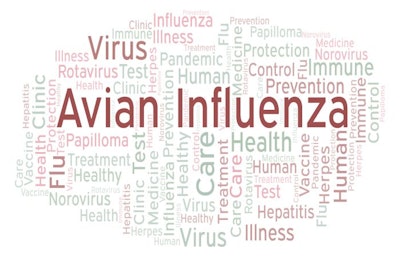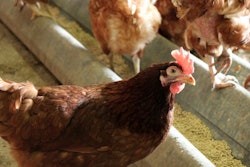
The only country officially reporting new outbreaks of highly pathogenic avian influenza (HPAI) over the past week is Taiwan, but the authorities and poultry farmers in Mexico have been meeting to discuss measures to control the disease situation across the country.
Three new outbreaks of HPAI linked to the H5N2 virus subtype have been reported by Taiwan’s Council of Agriculture to the World Organisation for Animal Health (OIE) over the past week. All these cases were identified between May 27 and June 8.
First to be affected was a group of three geese discarded at Sihu in the county of Yunlin. At a slaughterhouse in the city of Taipei, the presence of the virus was confirmed in a group of 26 native chickens, two of which showed symptoms of HPAI at inspection, and the third outbreak was confirmed after almost 600 native chickens died out of a farm of 12,467 birds at Dongshi in Yunlin.
Since the OIE report, there has been one further confirmed HPAI outbreak in Taiwanese poultry linked to the H5N2 virus variant. This involved a farm at Fangyuan in Changhua county, reports Focus Taiwan. The flock of almost 28,000 free-range chickens has been culled, and cleaning and disinfection are underway.
These latest cases bring Taiwan’s total outbreaks so far this year to 26, with 368,627 poultry culled, according to the animal health agency.
Mexico: authorities, farmers agree national HPAI controls
There have been no new outbreaks of HPAI in Mexico since the third week of May, according to the agriculture ministry’s latest report to the OIE. The agency reports that two poultry units affected by the disease — a backyard flock in the state of Guerrero, and an egg farm in Queretaro — have been depopulated, the carcasses and waste have been removed, and cleaning and disinfection are underway.
Last week, a meeting was held between the government’s national service for health, safety and agrifood quality, Senasica and the poultry producers’ association (UNA) to reinforce biosecurity measures, and bring avian influenza under control across the country.
Among the measures agreed is a ban on the movement of poultry droppings and litter. UNA has requested financial support so that poultry farmers can adopt technology to turn poultry litter safely into a feed ingredient.
Also discussed were vaccination schemes, how to control the infection on farms, and ways to speed up the re-population of poultry units after an outbreak.
A senior official at Senasica said that private testing labs will in future be authorized to carry out diagnostic tests for avian influenza, providing they can demonstrate there is no conflict of interest with their client, the farming company.
Avian flu situation 'resolved' in Namibia, Denmark
According to the latest report from the agriculture ministry of the southern African state to the OIE, the HPAI situation in wild birds — which began in February this year — has ended. A further 238 African jackass penguins found dead on three islands off the coast of the southern region of Karas have tested positive for the H5N8 virus subtype.
The H7N7 subtype of the low-pathogenic avian influenza (LPAI) virus has not been detected in Denmark since mid-March of this year, and the environment ministry has declared to the OIE that the disease situation has been “resolved.” This comes after the virus was found in a flock of mallard ducks reared for restocking game at a farm in the municipality of Middelfart on the island of Funen on March 12. The flock was culled, and the premises have been cleaned and disinfected.
View our continuing coverage of the global avian influenza situation.















